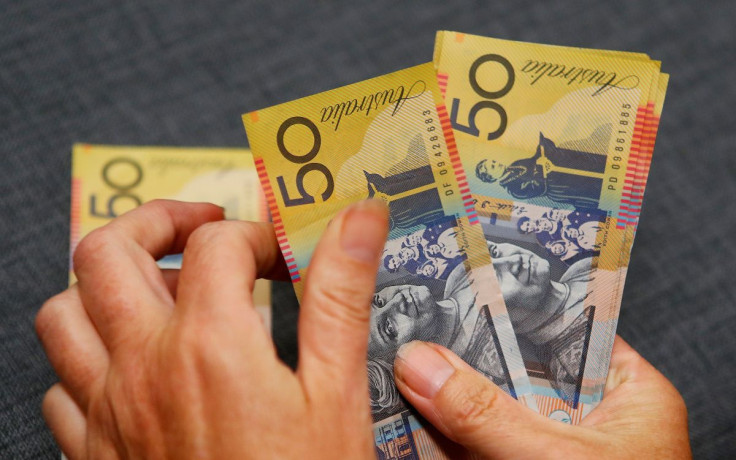Dollar Climbs, Euro Dips, As Biden Brings Sanctions Plan To Europe

The dollar climbed on Wednesday while the euro weakened as oil prices shot higher again with U.S. President Joe Biden poised to announce, alongside European leaders, new sanctions against Russia during his trip to Europe.
Biden is due to arrive in Brussels later on Wednesday on his first foreign trip since the war in Ukraine began, and will meet NATO and European leaders in an emergency summit at the Western military alliance's headquarters. Sources said the U.S. package would include measures targeting Russian members of parliament.
Prices for commodities such as oil and wheat have climbed as tensions in Ukraine have escalated, putting additional upward pressure on already high inflation due to supply chain bottlenecks. Rising inflation has led many central banks, including the U.S. Federal Reserve, to take measures to rein in prices, such as by raising interest rates.
"The capital flow is going to be I don't want to be in Europe, it is closer to Ukraine literally in the geographical sense, but also it is the fallout from the sanctions, there is a lot of money rotating back out of Europe and back towards the States," said Huw Roberts, head of analytics at Quant Insight.
"If we get another round of sanctions, then people therefore say the blowback on the West is going to fall on Europe disproportionately."
The dollar index rose 0.097%, with the euro down 0.17% to $1.1008.
Crude prices were up more than 5% on Wednesday, supported by disruption to Russian and Kazakh crude exports.
The Russian rouble strengthened 8.65% versus the greenback at 89.50 per dollar after hitting a one-month high of 87.50 after Russian President Vladimir Putin said Russia will seek payment in roubles for gas sales from "unfriendly" countries.
Federal Reserve Chair Jerome Powell raised the possibility of raising interest rates by more than 25 basis points at upcoming meetings, a more aggressive stance echoed by other policymakers, which has supported the greenback and helped boost the yield on the benchmark 10-year U.S. Treasury note to more than 2.4%.
On Wednesday, San Francisco Fed President Mary Daly and Cleveland Fed President Loretta Mester became the latest Fed policymakers to indicate a bigger hike was in the offing at the central bank's May meeting.
Jefferies on Wednesday updated its Fed forecast in light of Powell's comments and now sees a 50-basis-point rate hike at both the May and June meetings, followed by 25-basis-point hikes at the remaining meetings of 2022.
The Japanese yen weakened 0.30% to 121.12 per dollar, while the British pound was last trading at $1.3207, down 0.42% on the day after earlier hitting a three-week high of $1.3298.
Inflation in Britain shot up faster than expected last month to hit a new 30-year high at a 6.2% year-over-year rise. British finance minister Rishi Sunak cut taxes for workers and reduced a duty on fuel on the heels of the inflation data as he sought to soften a severe cost-of-living squeeze against the backdrop of fast-rising prices and slowing economic growth.
The yen has been weak against the dollar recently, with the currency slipping to a new six-year low of 121.40 per dollar as the path of their respective central banks has diverged. Bank of Japan Governor Haruhiko Kuroda said on Tuesday the central bank must maintain ultra-loose monetary policy as recent cost-push inflation could hurt the economy.
In cryptocurrency markets, Bitcoin last fell 0.98% to $42,179.99.
Ethereum last fell 1.32% to $2,962.69.
© Copyright Thomson Reuters 2024. All rights reserved.




















